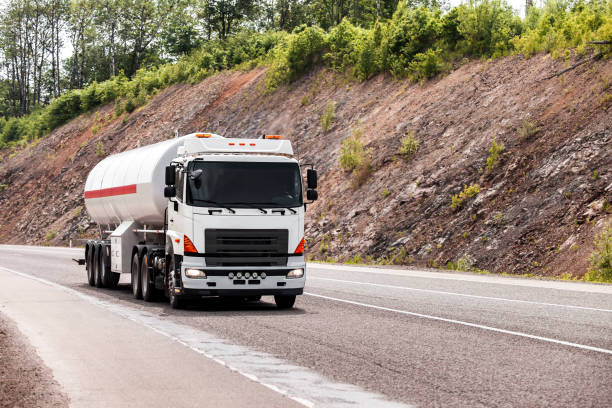Revolutionizing the Delivery Industry with Propane-Powered Vehicles

Are you frustrated with gas-guzzling delivery vehicles emitting pollutants into the air? Don’t worry! You might be surprised to learn that the solution to your problems is within reach.
Propane-powered vehicles – the game-changing innovation that is revolutionizing the delivery industry. With cleaner emissions, lower fuel costs, and quieter operation, propane-powered cars are quickly becoming famous for businesses looking to reduce their environmental impact and cut costs.
In this article, we’ll explore the benefits of propane-powered vehicles, how they work, and why they may be the future of the delivery industry.
Benefits of Propane-Powered Vehicles
Propane-powered vehicles have a lot of advantages over traditional gas-powered cars. First and foremost, propane burns cleaner than gasoline or diesel, producing fewer emissions and reducing air pollution. This makes it an ideal fuel choice for businesses committed to sustainability and reducing their carbon footprint.
In addition to being better for the environment, propane tends to be more affordable than gasoline or diesel. According to the Propane Education and Research Council (PERC), propane can be up to 50% less expensive than gasoline and 40% cheaper than diesel. This can add to significant savings over time, especially for businesses with a large fleet of vehicles.
Propane-powered vehicles are also quieter than their gas-powered counterparts, making them an excellent option for businesses that operate in residential areas or other noise-sensitive environments.
How Propane-Powered Vehicles Work
Propane-powered vehicles work in much the same way as traditional gas-powered vehicles. The main difference is that propane is used instead of gasoline or diesel.
Propane is stored in a tank on the vehicle and is typically pressurized to around 150 PSI. From there, it is fed into the engine through a fuel system similar to gas-powered cars. The propane is ignited in the machine, producing the power needed to move the vehicle.
One thing to remember is that propane-powered vehicles require some engine and fuel system modifications to run on propane. This means that not all cars can be easily converted to run-on propane. However, many manufacturers produce propane-powered vehicles, so businesses interested in switching to propane have plenty of options.
Why Propane-Powered Vehicles Are the Future
With all of their advantages, it’s easy to see why propane-powered vehicles are quickly becoming the future of the delivery industry. In addition to the benefits mentioned above, propane is also a domestically produced fuel source, meaning that businesses that use propane support the American economy.
Propane-powered vehicles also offer businesses greater flexibility when it comes to fueling. While gasoline and diesel can only be obtained at gas stations, propane can be delivered directly to a business’s location. This can be a huge advantage for companies that operate in remote areas or that have difficulty accessing traditional fuel sources.
Finally, the availability of propane-powered vehicles will only continue to grow as more and more businesses make the switch. This means companies that invest in propane-powered cars now will be well-positioned for the future, with access to a wide range of vehicles and support services.
In conclusion, propane-powered vehicles are an exciting innovation transforming the delivery industry. With their clean-burning fuel, cost savings, and quieter operation, propane-powered vehicles quickly become the preferred choice for businesses committed to sustainability and efficiency. If you’re looking to cut costs, reduce your environmental impact, and stay ahead of the curve, propane-powered vehicles may be the answer you’ve been looking for.
















